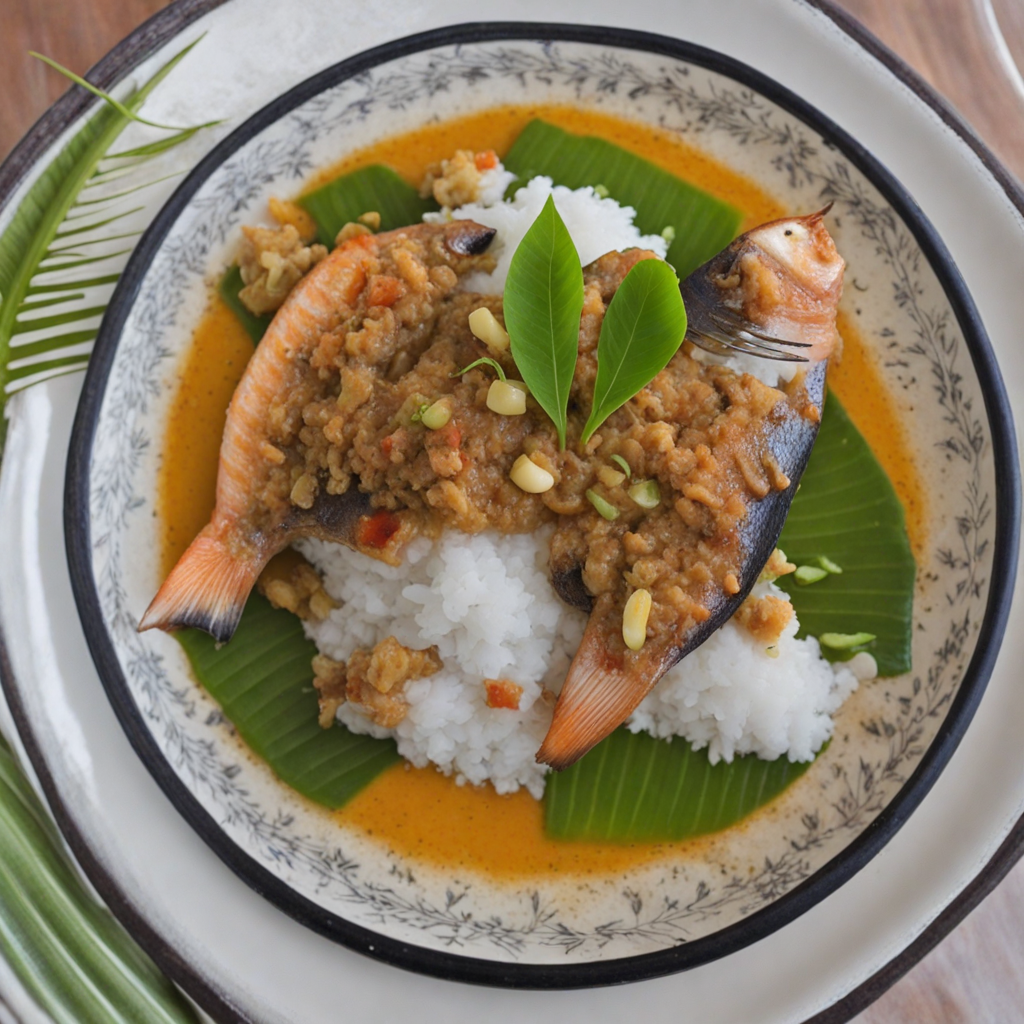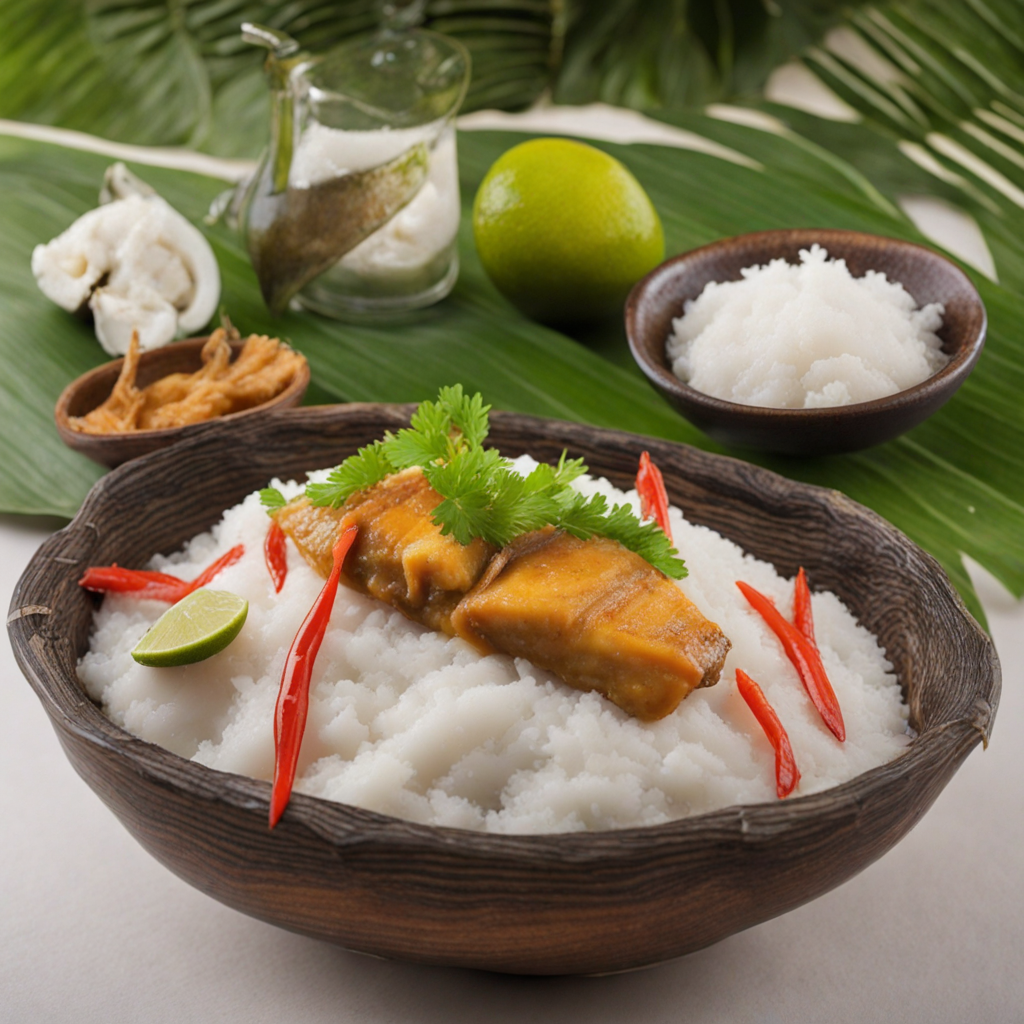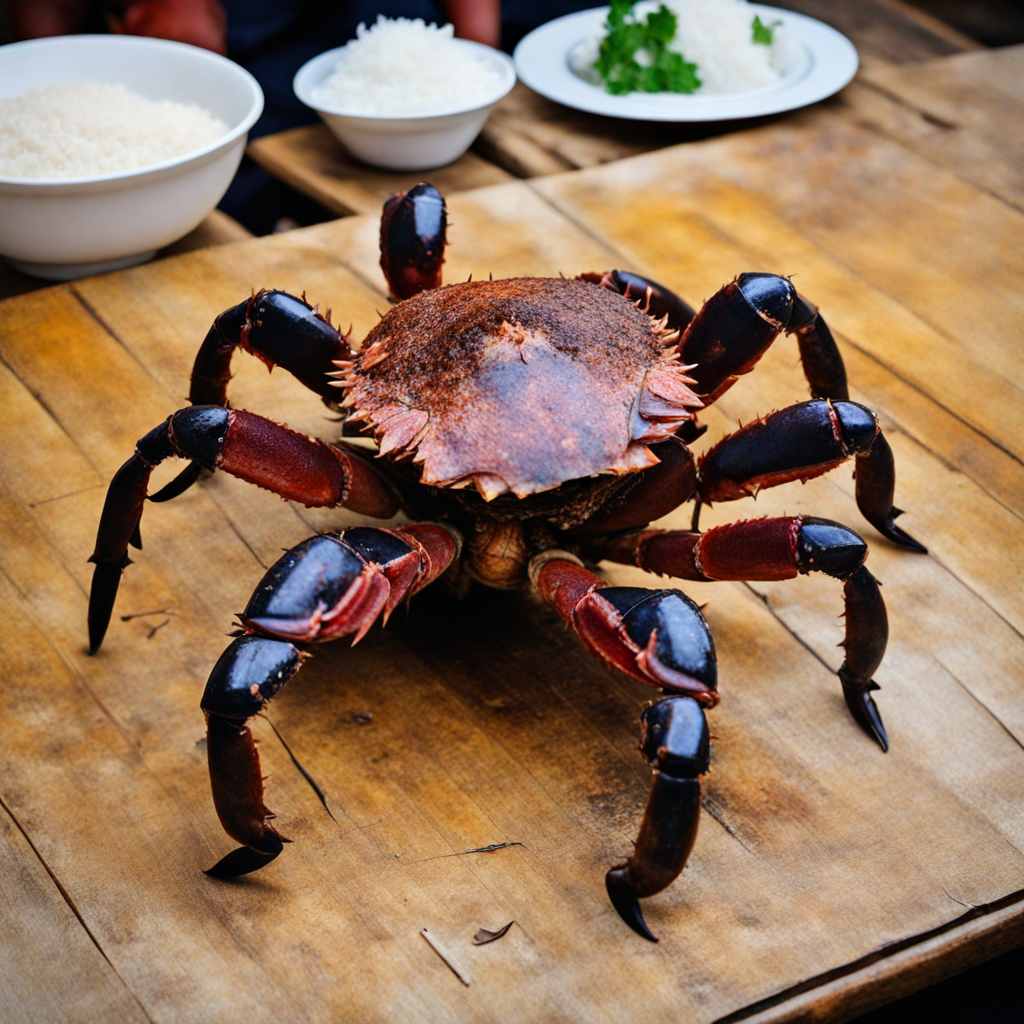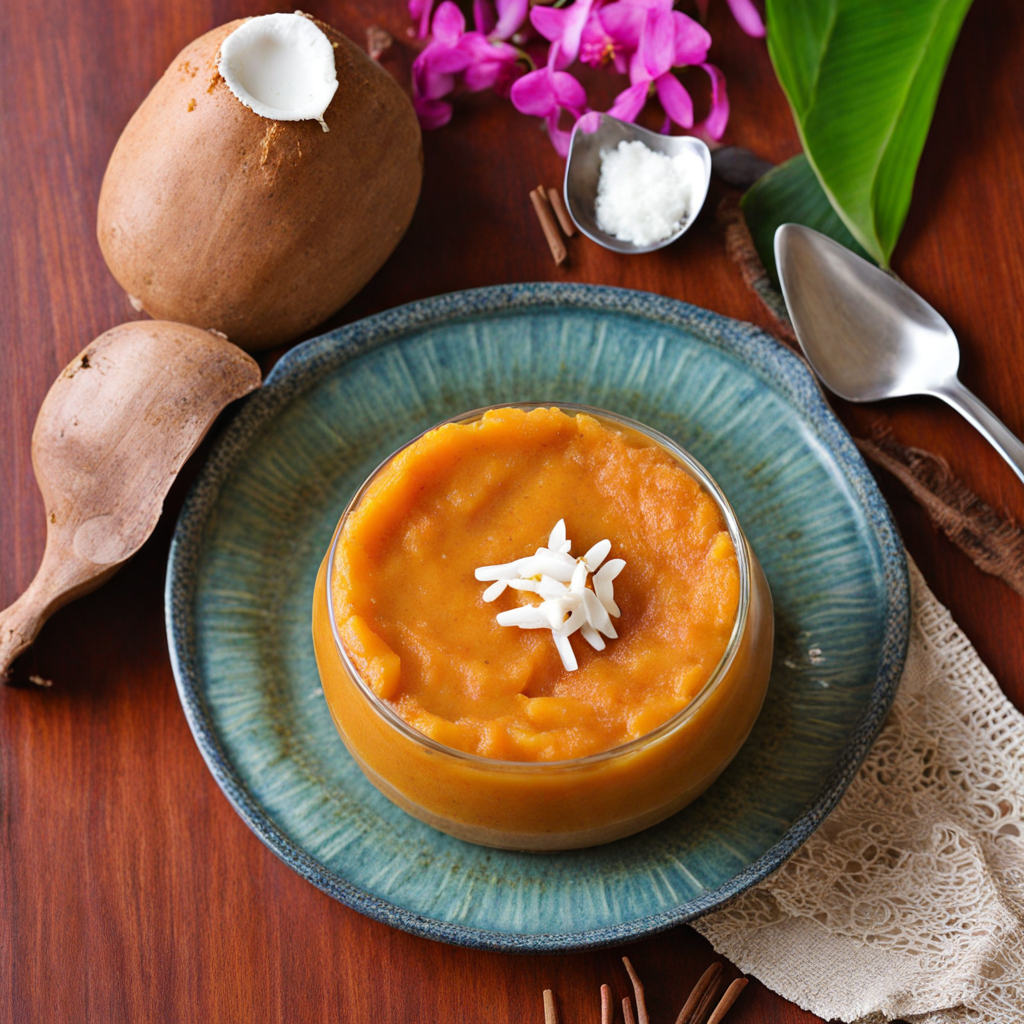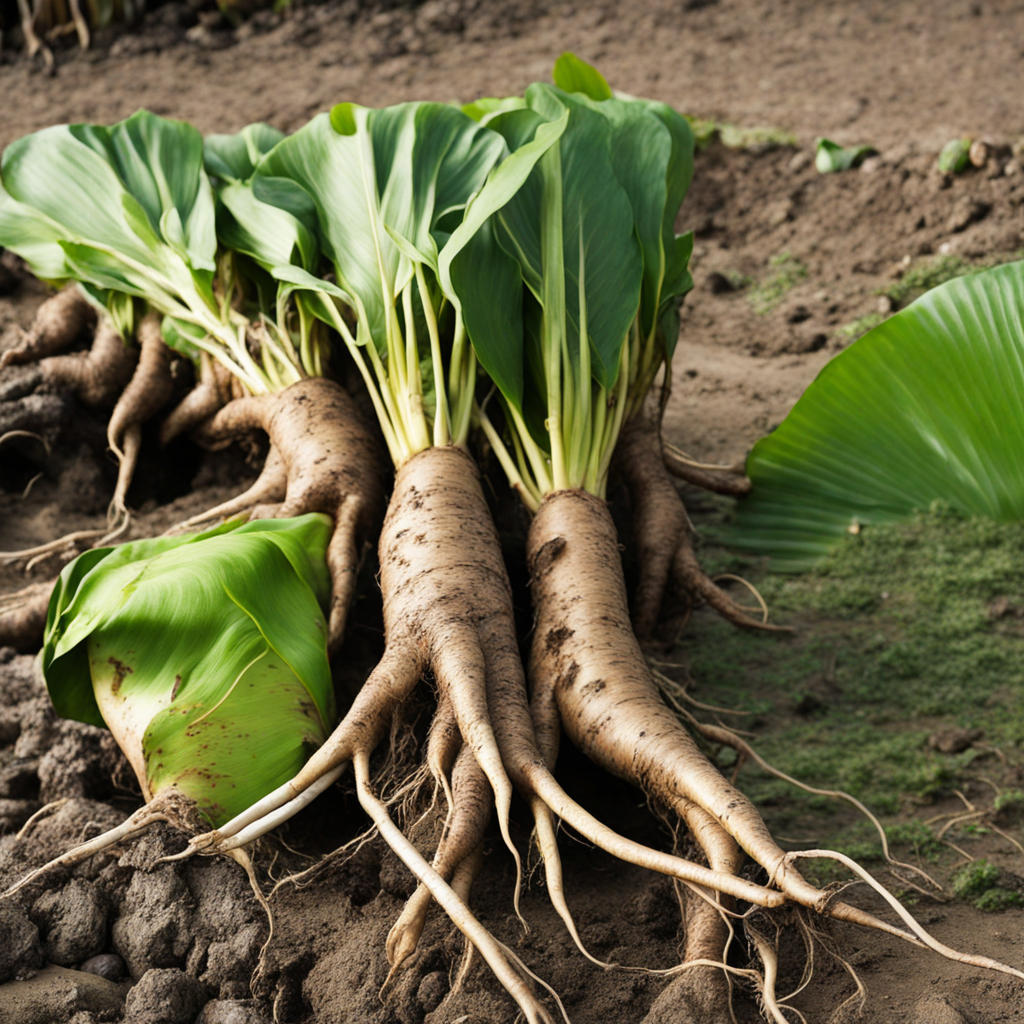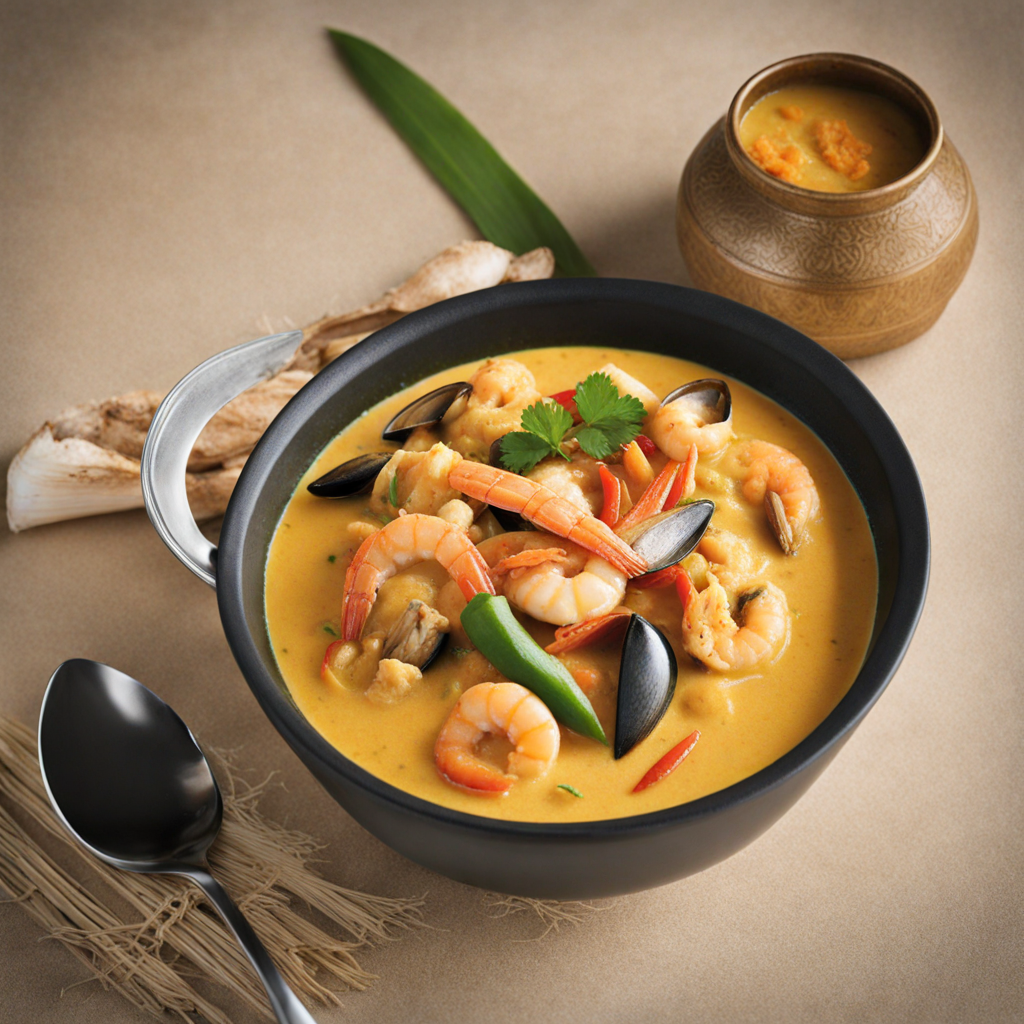Fafaru
Fafaru is a unique and traditional dish from Tuvalu, celebrated for its distinct flavors and cultural significance. This dish consists primarily of raw fish, typically marinated in a mixture of fermented pandanus and saltwater. The fermentation process not only preserves the fish but also imparts a bold, tangy flavor that is both refreshing and challenging to those unaccustomed to it. The use of local ingredients showcases the connection between the Tuvaluan people and their oceanic environment, where fishing is a vital part of their lifestyle and culture. When served, Fafaru is often accompanied by coconut cream, which adds a rich, creamy texture that beautifully complements the fish. Diners can expect a complex flavor profile that balances salty, sour, and umami notes. The dish is frequently enjoyed with a side of taro or breadfruit, serving to soak up the vibrant juices and enhance the overall experience. Fafaru is not just a meal; it's a celebration of community, often enjoyed during gatherings and special occasions, making it a staple in Tuvaluan hospitality. For those adventurous eaters looking to expand their palate, Fafaru offers an exciting journey into the world of raw seafood. Its bold and unconventional taste may take a bit of getting used to, but it is precisely this adventurous spirit that makes it a beloved dish among locals. When you take a bite of Fafaru, you are not only tasting the ocean but also experiencing the rich heritage and traditions of Tuvalu, making it a must-try for any food enthusiast.
How It Became This Dish
The History of Fafaru: A Culinary Treasure from Tuvalu Introduction Fafaru is not just a dish; it is a culinary emblem of Tuvalu, an island nation scattered across the Pacific Ocean. Known for its unique preparation and deep cultural roots, Fafaru encapsulates the essence of Tuvaluan food, reflecting the nation’s traditions, environment, and communal values. This traditional dish, made primarily from fish marinated in fermented seawater and served with a simple accompaniment of grated coconut or vegetables, offers a window into the lives of Tuvaluans, their history, and the importance of the sea to their sustenance and culture. Origins of Fafaru The history of Fafaru can be traced back to the early Polynesian settlers who arrived on the islands of Tuvalu over a millennium ago. These early inhabitants were skilled navigators and fishermen, relying heavily on the ocean for sustenance. The preparation of Fafaru likely evolved as a practical method to preserve fish in a tropical climate, where refrigeration was non-existent. The method of fermentation used in Fafaru is believed to be influenced by ancient practices common among Polynesian cultures, where fermentation was a crucial technique for food preservation. By submerging fish in seawater, Tuvaluans were able to enhance the flavors and extend the shelf life of their catch, which was critical for survival in an environment with limited resources. Cultural Significance Fafaru is more than just a dish; it serves as a cultural artifact that connects the Tuvaluans to their ancestors and their environment. The dish is often prepared during communal gatherings, celebrations, and important life events, symbolizing unity and sharing within the community. The act of preparing and consuming Fafaru is steeped in ritual; it often involves storytelling and the passing down of traditions from one generation to another. The dish embodies the Tuvaluan philosophy of respect for nature and the ocean. The sea is not only a source of food but also a vital aspect of Tuvaluan identity and spirituality. Fafaru reflects the sustainable practices of fishing and the deep understanding Tuvaluans have of their marine environment. The use of local ingredients—fresh fish, seawater, and coconut—demonstrates a commitment to utilizing what the land and sea provide, embodying a harmonious relationship with nature. The Ingredients and Preparation Traditionally, Fafaru is made with fish, typically skipjack tuna or other local varieties, which are abundant in Tuvaluan waters. The fish is cleaned and cut into pieces, then marinated in seawater for several hours or even overnight. This technique not only flavors the fish but also aids in preservation. The fermentation process gives Fafaru its distinctive pungent aroma, which is an acquired taste for many outside the culture. Accompaniments for Fafaru often include grated coconut, which adds richness and texture, or fresh vegetables such as cucumbers or tomatoes. The simplicity of the dish speaks to the resourcefulness of Tuvaluans, who have learned to create satisfying meals with minimal ingredients. Evolution Over Time As Tuvalu has navigated the challenges of modernity, so too has Fafaru evolved. The introduction of new ingredients and cooking techniques has influenced the traditional preparation of this dish. While the core elements remain unchanged, some Tuvaluans now experiment with different types of fish and seasonings, incorporating influences from other Pacific cuisines. The globalization of food culture has also impacted Fafaru. With increased tourism and exposure to international culinary trends, Fafaru has gained attention beyond Tuvalu’s shores. It is now featured in various culinary festivals and cultural events, showcasing the richness of Tuvaluan cuisine and attracting interest from food enthusiasts worldwide. Despite these changes, the essence of Fafaru remains intact. Many Tuvaluans continue to prepare the dish in traditional ways, emphasizing the importance of preserving their cultural heritage. The dish serves as a reminder of the resilience of Tuvaluan identity in the face of globalization and environmental challenges. Challenges and Resilience Tuvalu is one of the countries most vulnerable to climate change, with rising sea levels threatening its very existence. This impending crisis poses a significant challenge to traditional practices, including those surrounding Fafaru. The degradation of marine ecosystems and overfishing can impact the availability of key ingredients, forcing Tuvaluans to adapt their culinary practices. In response to these challenges, there has been a renewed focus on sustainable fishing practices and the importance of preserving traditional knowledge. Communities are coming together to advocate for the protection of their marine environment, recognizing that the future of dishes like Fafaru is intrinsically linked to the health of the ocean. Efforts to promote sustainable fishing and responsible consumption are vital not only for the preservation of Tuvaluan cuisine but also for the survival of the culture itself. Conclusion Fafaru is a dish that encapsulates the spirit of Tuvaluan culture, history, and resilience. Its origins lie in the practical needs of early settlers, while its cultural significance has deepened over generations, becoming a symbol of community, identity, and respect for nature. As Tuvalu navigates the complexities of modern life and environmental challenges, Fafaru serves as a reminder of the importance of tradition, sustainability, and the enduring connection between people and their land. As we savor the unique flavors of Fafaru, we are not merely enjoying a dish; we are partaking in a rich narrative that spans centuries, connecting us to the Tuvaluans who have cultivated this culinary treasure against the backdrop of a changing world. In this way, Fafaru transcends the boundaries of food, becoming a bridge that links the past, present, and future of Tuvalu and its people.
You may like
Discover local flavors from Tuvalu


